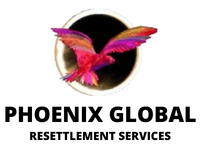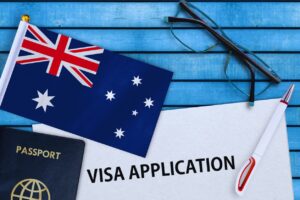Best Canada Immigration Consultants in Bangalore — How to Pick a Partner Who Gets Results
1. Why local consultants matter — Bangalore advantages
You can hire a consultant anywhere in the world, but there’s real value in working with local advisors when you live in Bangalore:
- Face-to-face meetings for complex cases speed up document collection and clarifications.
- Local knowledge of employer patterns, university timelines, and attestation channels saves time.
- Language and process coaching in your time zone removes friction.
- Access to community and placement networks — many Bangalore-based firms maintain employer and alumni connections in Canada.
That’s why when people search for the best Canada immigration consultants in Bangalore, they often want a firm that combines Canadian regulatory knowledge with local operational experience.
2. What the best consultants actually do for you
A top-tier consultant is more than an application preparer. Here’s the practical support you should expect:
- Comprehensive eligibility assessment — realistic scoring for Express Entry, PNPs, or other streams.
- Pathway strategy — choosing the fastest or most secure route based on your goals (PR speed vs certainty, or study-to-work vs direct immigration).
- Document preparation & quality control — templates for employment letters, translation guidance, ECA help.
- Application drafting & submission — tailored cover letters, accurate form filling, and portal management.
- Response handling — managing IRCC (Immigration, Refugees and Citizenship Canada) requests for additional documents or clarifications.
- Pre-landing & settlement planning — bank accounts, SIN, housing, school search and local orientation.
- Post-landing services — PR card follow-up, family sponsorship planning, citizenship pathways.
Crucially, the best firms set expectations plainly — they don’t promise approvals, they promise competent preparation and proactive follow-up.
3. Popular Canadian pathways and who they suit
Understanding pathways helps you pick the right consultant and strategy. Here are the common ones:
- Express Entry (Federal Skilled Worker / Canadian Experience Class): For skilled professionals with qualifying education, work experience, and language scores. Fast for high-scoring profiles.
- Provincial Nominee Programs (PNPs): If your occupation matches a provincial demand list, a PNP nomination can significantly boost your chance. Some are aligned with Express Entry for speed.
- Study Permit → Post-Graduation Work Permit (PGWP) → PR: A popular route for younger applicants or those needing Canadian credentials. Good consultants help with program and institution selection.
- Work Permits (LMIA or employer-specific): Can lead to PR later; useful when you have a firm job offer.
- Family Sponsorship: For spouses, dependent children, and some parents — straightforward when eligibility is clear.
- Business / Investor streams: For entrepreneurs with capital and a business plan. More complex and region-specific.
A skilled consultant maps your background to these options and will explain trade-offs — speed vs risk, cost vs certainty.
4. How to vet and choose the best Canada immigration consultants in Bangalore (practical checklist)
Here is a step-by-step checklist I recommend, based on ten years of advising applicants:
Licensing & credentials
- Ask for registration: For Canada immigration representation, insist on an RCIC (Regulated Canadian Immigration Consultant) number or a Canadian-licensed lawyer. Verify on the official CICC register.
- Local business credentials: Check company registration, office address (No.487 JT Plaza, Jyothi Nivas College Road, Koramangala for Phoenix Global Resettlement Services), and contactability.
Track record & references
- Request anonymized case studies similar to your profile (student-to-PR, skilled-worker, spouse sponsorship).
- Ask for references and follow up. Phone a recent client if possible.
Transparency of fees & contract
- Itemized fee schedule (government fees vs consultant fees) and refund/cancellation terms.
- Written service agreement that lists deliverables and timelines.
Communication & project management
- Assigned case manager: who will handle your file day-to-day?
- Response SLA: How quickly do they reply to client emails/calls?
- Digital portal & document security: secure upload and encrypted storage are a must.
Ethical practices & red flags
- No guarantees of approval. Any promise of “guaranteed visa” is a red flag.
- Avoid advice that asks you to fabricate documents or misrepresent facts.
- Check for disciplinary history on regulatory sites.
Value-added services
- Settlement support (temporary accommodation sourcing, job-prep workshops) is a plus.
- Pre-move orientation and networking introductions can strongly influence early success.
If a firm clears these points, they’re worthy of deeper engagement.
5. Typical timeline, documents and realistic costs
Timelines (typical)
- Initial eligibility assessment: 1–2 weeks.
- Express Entry profile & documentation: 4–8 weeks to prepare a clean submission.
- PNP processing: varies by province; 3–12 months depending on stream.
- IRCC processing after submission: from a few months to over a year, depending on route and completeness.
Document checklist (core items)
- Valid passport(s) and identity proofs.
- Education credentials and ECA (Educational Credential Assessment).
- Language test results (IELTS or CELPIP).
- Employment letters with duties, dates, and hours.
- Police clearance certificates.
- Medical exam results from IRCC panel physician.
- Proof of funds (if required).
- Marriage/birth certificates for dependents (with certified translations).
Costs (broad guideline)
- Government fees: fixed and published by IRCC.
- Professional fees: vary — from basic document-only assistance to full-service case management with pre- and post-landing support. Expect a range depending on complexity.
- Other costs: translations, ECA fees, medicals, language tests.
Be cautious of very low fees; they usually imply minimal support.
6. Common mistakes applicants make — and how experts prevent them
From files I’ve reviewed over the years, these errors keep recurring:
- Incomplete employment evidence: missing job descriptions or unclear dates. A top consultant provides templates and coaches referees.
- Date mismatches across documents: CV, contracts, and bank records must align — consultants cross-check for consistency.
- Using non-accredited translators: consultants refer accredited translators for legal documents.
- Applying for the wrong stream: a mismatch between applicant profile and chosen stream leads to refusal. Experts suggest alternate pathways with better odds.
- Failing to respond to IRCC requests in time: consultants monitor portals and notify clients immediately.
An experienced consultant anticipates problems and reduces the risk of costly delays.
7. Helpful enhancements: templates, timelines, and next steps you can use today
If you’re ready to start, ask your consultant for these tools — they speed the process:
- Employment letter template that meets IRCC detail requirements.
- Custom document checklist for your pathway.
- Application timeline tracker with milestones and responsible parties.
- Pre-landing checklist (housing search, SIN, health card, banking).
- Settlement resource pack for your chosen province (schools, community groups, job portals).




